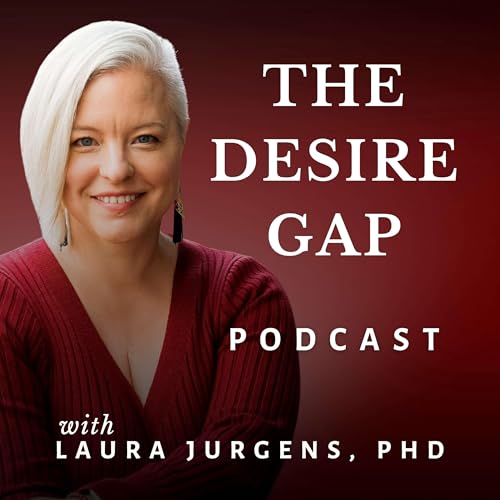Why does your body shut down during intimacy even when your mind wants connection? Why does rejection trigger panic that feels way bigger than the situation? The answer might have nothing to do with your current relationship—and everything to do with attachment wounds living in your nervous system.
In this episode, Laura talks with Dr. Aline LaPierre, creator of NeuroAffective Touch, about how our earliest experiences with touch shape everything about adult intimacy, sexuality, and connection.
You'll learn:
- Why touch is our "first language" and how it creates our blueprint for relationships
- How attachment wounds from childhood show up differently for higher-desire and lower-desire partners
- Why neglect and abuse create different patterns in the body—and how to recognize them
- The difference between therapeutic touch and massage (and why it matters)
- How partners can support each other's nervous system healing without becoming therapists
- Why the body remembers what the mind has forgotten—and how to help it tell its story
- Real examples of how couples use attuned touch for deep healing
Dr. LaPierre explains why traditional talk therapy often can't reach body-based trauma, and shares the vision behind bringing NeuroAffective Touch into intimate partnerships for the first time.
Whether you're dealing with desire differences, struggling with touch aversion, or sensing that old wounds are affecting your intimacy, this conversation offers a completely different lens for understanding what's happening in your body.
About Dr. Aline LaPierre: Creator of NeuroAffective Touch, President of the United States Association of Body Psychotherapy, and co-author of the bestselling book Healing Developmental Trauma (available in 14 languages). Find her at https://neuroaffectivetouch.com/
Plus: Learn about the groundbreaking couples course "Thriving Together" launching February 2026—the first systematic training for couples to support each other's attachment healing through touch.
APPLY for the course "Thriving Together: Couples Healing Attachment Patterns Through Touch" here: https://neuroaffectivetouch.com/thriving-together-application/
Perfect for anyone curious about somatic approaches to healing, body-based trauma work, and how our earliest experiences continue to shape us.
Get my free guide: 5 Steps to Start Solving Desire Differences
(Without Blame or Shame), A Practical Starting Point for Individuals and Couples, at https://laurajurgens.com/libido
Find out more about me at https://laurajurgens.com/
 33 分
33 分 42 分
42 分 2025/10/2030 分
2025/10/2030 分 52 分
52 分 28 分
28 分 36 分
36 分 2025/09/2220 分
2025/09/2220 分 32 分
32 分
